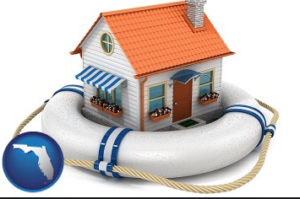By John Haughey
The Center Square
December 17, 2020
 As property insurance rates skyrocket, Citizens Property Insurance Corp. will become an increasingly more affordable option for Florida’s 6.2 million homeowners.
As property insurance rates skyrocket, Citizens Property Insurance Corp. will become an increasingly more affordable option for Florida’s 6.2 million homeowners.
That could be disastrous, however, Citizens’ Actuarial & Underwriting Committee warned in its 2021 rate package proposal.
“Citizens’ policy count has grown by more than 100,000 in the last year with between 2,000-3,000 new policies being written each week in recent months,” the proposal stated. “If nothing changes, growth of at least an additional 100,000 policies is expected by year-end 2021. This current trend is not sustainable and could put Citizens’ solid financial position at risk.”
According to its Nov. 30 “snapshot,” Citizens had 532,788 policyholders last month, topping a half-million for the first time since 2015.
The number of Citizens policyholders has increased by 65,000 since July and by nearly 90,000 – from 444,323 – since Nov. 30, 2019. The report projected more than 630,000 will be enrolled this time next year.
Citizens is a nonprofit corporation created by state lawmakers in 2002 to provide property insurance to homeowners and businesses unable to acquire coverage after corporate insurers such as State Farm, Allstate and Liberty Mutual abandoned Florida because of hurricane losses.
Citizens’ policy count swelled in 2012 to 1.5 million, with the state backing $10 billion in property insurance policies. A “depopulation” initiative to transfer policies – and liability – to private property insurers whittled the count to a low of 419,475 in October 2019.
Residents can purchase Citizens insurance if they cannot find private insurance or if a private insurer’s policy is priced 15% above a comparable Citizens’ offering. State law precludes Citizens from raising renewal rates more than 10%.
Citizens’ proposed 2021 rate package calls for an average rate increase of 3.7% effective Aug. 1, 2021. Under its proposal, homeowner multiperil policies would increase 2% and condominium rates by 6.4%.
Citizens’ proposed increases are far below those most Florida homeowners are facing.
Citing ballooning reinsurance costs, loss creep from 2017 and 2018 hurricanes, nonweather coastal flooding and excessive litigation costs, many of the state’s 60 independent insurers are seeking eye-popping rate increases from the Florida Office of Insurance Regulation (FOIR).
At least 12 insurers have requested rate hikes topping 15 percent since last December, including several increase requests between 30% and 40%.
Many independent insurers in Florida’s market are thinly capitalized and, therefore, influenced by reinsurance rates. Reinsurance essentially is insurance for insurers. It is financed by private capital from hedge funds and other sources that essentially gamble against hurricanes.
After a decade without a landfall hurricane in Florida, 2017’s Hurricane Irma caused $17 billion in damage and 2018’s Hurricane Michael caused $12 billion, ending an era of “soft pricing.”
Because Florida allows claims to be filed three years after an event, reinsurers are hedging bets by requesting carriers raise rates between 25% to 45% in renewing Florida policies to account for 2017-18 loss creep.
Citizens’ ratepayers are not as vulnerable to reinsurance costs because the state is, essentially, the “insurer of last resort” and the 10% cap on renewal increases.
Without the cap, the proposal estimated Citizens’ suggested 3.7% rate hike would range from 10.7% to 77% for different categories in different areas of the state. Ninety-one percent of Citizens’ homeowners policyholders “pay less than the average private insurer’s rate … mostly due to the difference in reinsurance expenses,” according to the proposal.
Sen. Jeff Brandes, R-St. Petersburg, has crafted a bill that would do away with the 10% cap on rate hikes that keeps Citizens’ policies artificially inexpensive.
If Citizens does not align with the private insurers, Brandes said, more will flee the private market and swamp Citizens, making it too big not to fail.
